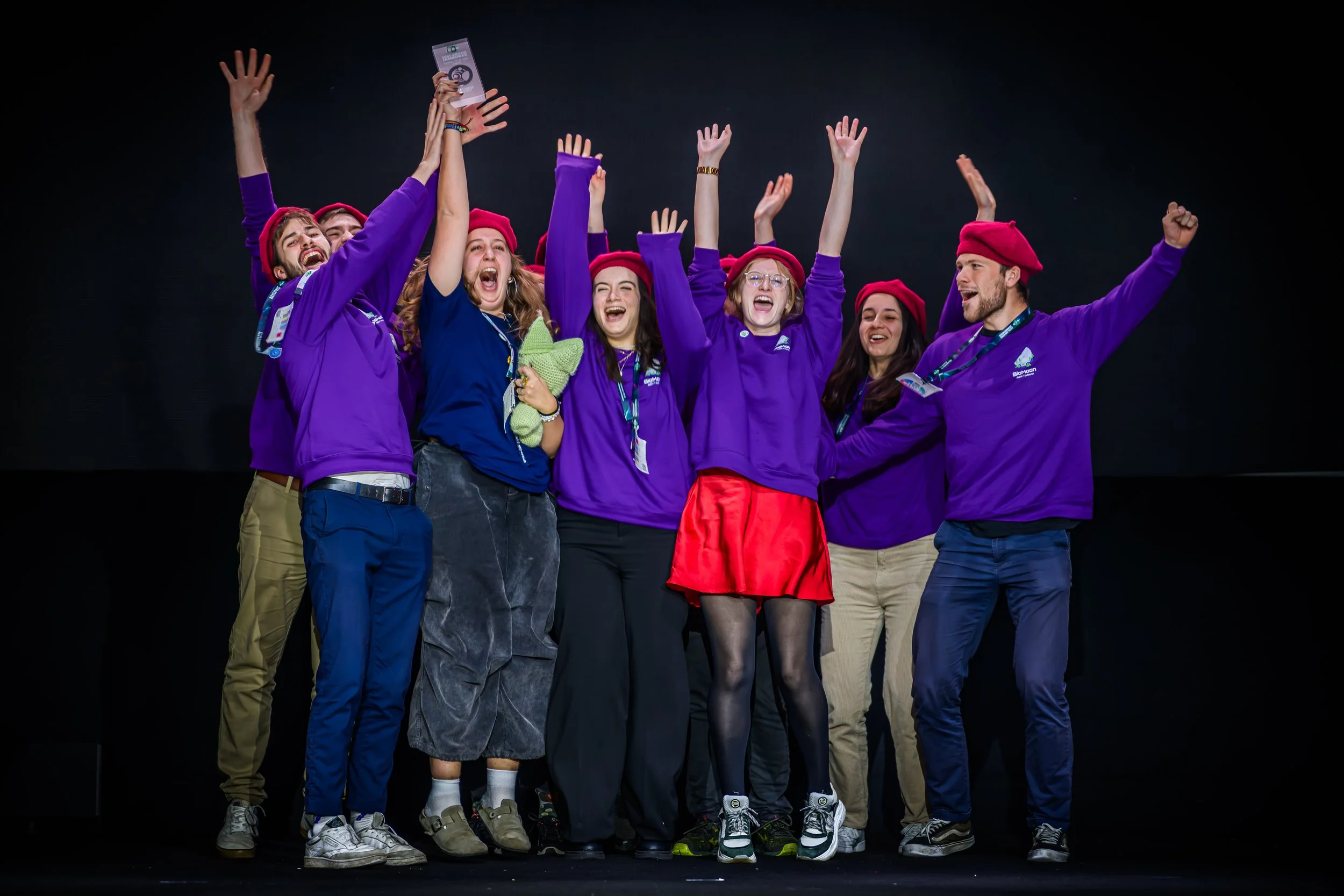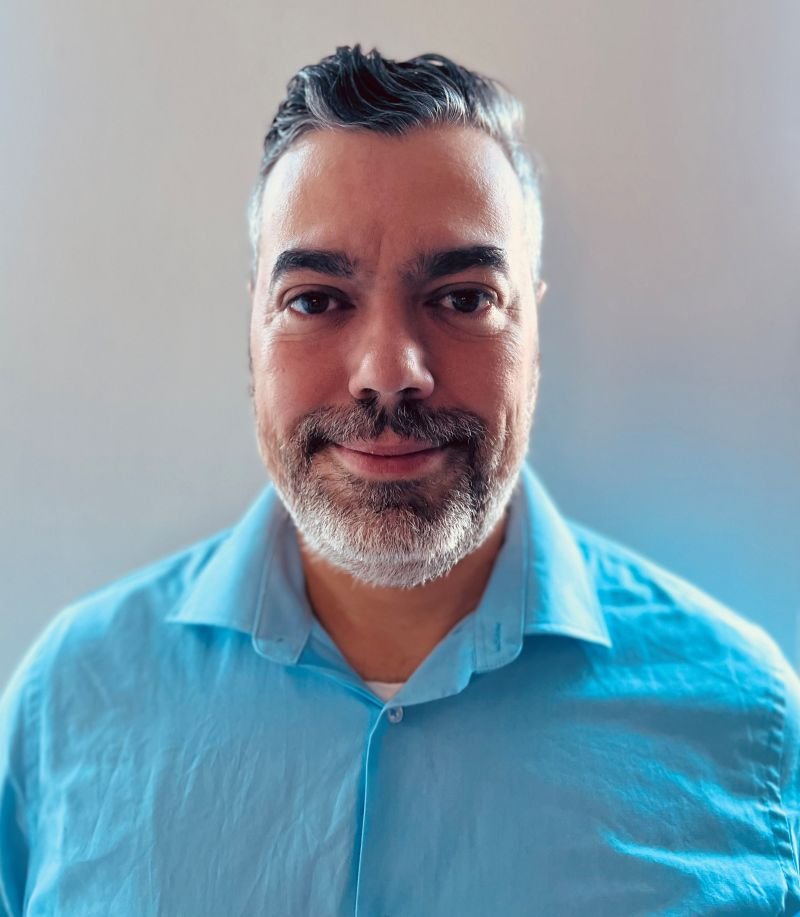2024: A Stellar Year for the iGEM Space Initiative
2024 witnessed a number of space happenings – from meteor showers, supermoons and the heightened visibility of the aurora borealis, to colossal rocket launches, planetary missions, the first commercial spacewalk and the first sample return from the lunar far side. Yet, among the most exciting space happenings were the accomplishments of the iGEM Space Initiative.
Lynn Rothschild (NASA Ames):
“I am thrilled that the interest in iGEM projects for space has reached the level of a space network! I continue to believe that synthetic biology is the key to a sustained human presence off planet, and the creativity of iGEM teams - past, present and future - can pave the way.”
The Space Village and more at the 2024 iGEM Grand Jamboree
For the first time, the 2024 iGEM Grand Jamboree in Paris featured the Space Village, which served as a hub for teams, researchers and enthusiasts working on space exploration. There, 9 teams from 5 different countries applying synthetic biology to challenges posed by space exploration showcased their projects – ranging from the need for renewable resources to the development of sustainable life support systems.
Sandra Ortega Ugalde (ESA):
“At iGEM, I felt overwhelmed by the high-quality, enthusiasm and educational implications of the projects. I realized that there are no limits to unlock space exploration.”
The ingenuity of iGEMers was manifest in the projects of all the teams:
Winner: Best Space Project
Team Toulouse-INSA-UPS celebrating their win on the main stage at the 2024 Grand Jamboree.
Toulouse-INSA-UPS (France) developed a microbial biostimulant that uses in situ resources to support plant growth directly on lunar soil. Winner: Best Space Project, Top 10, Best New Composite Part, Gold Medal, Overgrad Division.
Nominee: Best Space Project
Nanjing-China (China) established a human-plant-microbe symbiotic system that achieves water purification, phosphorus recycling, and efficient energy utilization for long distance space travel. Nominated for Best Space Project, Gold Medal, Undergrad Division.
more teams: ABOA (Finland) Gold Medal, Overgrad Division; ECIB-PKU (China) Silver Medal, Undergrad Division; IIT-Madras (India) Gold Medal, Undergrad Division; NMU-China (China) Gold Medal, Undergrad Division; RBHS-San-Diego (United States) High School Division; SZ-SHD (China) Silver Medal, High School Division; Tianjin (China) Gold Medal, Undergrad Division; and a special shout out to Foundation Advance team TUPLS-Japan (Japan) Bronze Medal, Undergrad Division.
Rodrigo Coutinho de Almeida (ESA):
“At the ESA booth, we didn’t just talk about science and synthetic biology; we inspired a vision for humanity’s future in space.”
The 2024 iGEM Grand Jamboree also featured:
A busy European Space Agency (ESA) booth, where hundreds of attendees engaged with top experts to learn about launching projects into orbit and starting careers in space exploration;
A panel discussion of Synthetic Biology for Space and Earth Applications with Emily Aurand (Engineering Biology Research Consortium), Miguel Ferreira (Space Applications Services), Virginia Wotring (International Space University), and Sandra Ortega Ugalde (European Space Agency); and
A talk by Professor Daniela Billi (University of Rome Tor Vergata) about the work of the European Space Agency in developing a synthetic biology toolbox for space-tolerant cyanobacteria.
Miguel Ferreira (Space Applications Services):
“The Grand Jamboree captures the same collaborative spirit that drives space exploration—uniting teams from around the globe to tackle humanity’s most pressing challenges. It was inspiring to participate and explore how synthetic biology and space can work together to shape a sustainable future both on Earth and beyond.”
Launch of the iGEM Space Network
2024 also saw the official launch of the iGEM Space Network, comprised of volunteers affiliated with space agencies such as the National Aeronautics and Space Administration (NASA), the European Space Agency (ESA), the Centre National d'Études Spatiales (CNES), the German Aerospace Research and Technology Centre (DLR), past iGEM teams, universities and companies. These gifted individuals offer mentorship and technical assistance to iGEM teams working on synthetic biology applications for space exploration.
Christopher Mason (Weill Cornell Medicine):
“Such an exciting and innovative network of scientists!”
iGEM in Space Webinar
In collaboration with the European Space Agency, iGEM Technology hosted the webinar: iGEM in Space: Meet the Space Network, featuring distinguished panelists Dr. Charles Cockell, Professor of Astrobiology at The University of Edinburgh; Dr. Christopher Mason, Professor of Genomics, Physiology, Biophysics and Neuroscience at Weill Cornell Medicine; Dr. Lynn Rothschild, Research Scientist at NASA Ames and Adjunct Professor at Brown University, and Dr. Rodrigo Coutinho de Almeida, Project Scientist for Space Biology for ESA.
iGEM’s statement at COPUOS 2024
Another first in 2024 was the presentation of a statement on behalf of iGEM highlighting the importance of synthetic biology for space exploration and introducing the iGEM Space Initiative to the world at the 2024 Committee on the Peaceful Uses of Outer Space (COPUOS), held at the United Nations Office at Vienna. You can check out the presentation of the statement or read the written statement.
ESA ECSECO Space Days
In January 2024, iGEM was also represented at the European Centre for Space Economy and Commerce (ECSECO) Space Days, organized by ESA and held at their headquarters in Paris. There, attendees engaged in a series of sessions led by top experts and practitioners in space economy.
Space Village Meetup
For the first time, iGEM organized a virtual meetup with all teams working on synthetic biology for space exploration in 2024. This was a live event held in late August where teams presented their projects and received feedback from fellow iGEMers and Space Network members.
ESTEC Presentation
In early October, iGEM gave an invited presentation at the European Space Research and Technology Centre (ESTEC) in the Netherlands, ESA’s largest facility. The presentation encompassed an overview of the iGEM Competition, the Space Initiative, iGEM programs and the Grand Jamboree, and was attended by four ESA programs: Education, MELiSSA, SciSpacE and Technology.
Plans for 2025
The iGEM Space Initiative has ambitious plans for 2025. Besides continuing to support teams that are working in space exploration and competing for the Best Space Village award, we will host earlier and more frequent webinars throughout the year, and conduct even more activities beyond the Competition.
If your team wishes to conduct a space-related project or believe your project has applications in space, we encourage you to reach out to our network of experts at space-network@igem.org.
Daniela Billi (University of Rome Tor Vergata):
“There is no doubt that the iGEM Space Initiative will inspire synthetic biology strategies to enhance the performance of life-support systems for human settlements on the Moon and Mars. In particular, the development of technologies based on primary producers, such as extremotolerant cyanobacteria, may find valuable applications on Earth in resource-poor areas and allow industrial processes with reduced resource use and pollutant emissions.”














